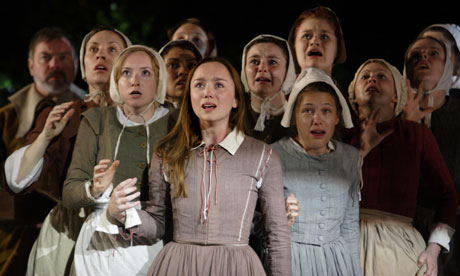Upon hearing that word, one would immediately think of picket signs, marches and strikes. Wait... this font is horrible.
Ah. Courier. Much better.
Now then.
I'm sure you've seen protests on television. People marching for equality or better pay, holding signs that state their cause. It happens all the time, and it happened still in the early nineteenth century.
But is it patriotic to protest our government?
I think, honestly, the answer is no. It isn't patriotic, but neither are a lot of things we do.
Many famous figures have protested in history, and we don't feel any differently about their achievements or impact on society because they did something unpatriotic.
"Clearly you aren't American enough because you wanted what's right! Grrrr!"
See how ridiculous that sounds, even without the added noise of anger? We just pay attention to what they did, not what the government thought was wrong about it at the time.
An obvious first identity to discuss would be that of Martin Luther King Jr.
What was that? You wanted to hear about Betty Ford?
I'm happy to oblige. MLK is too mainstream to talk about right now, anyway.
Betty Ford was a First Lady of The United States during the time that her husband, Gerald Ford, was President. She was a women's rights activist of the time. She raised awareness for breast cancer, and was famous for commenting on every hot issue in the news. She discussed feminism, equal pay, sex, drugs, gun-control, and abortion. (She was Pro Choice. I like this chick.)
She wasn't famous for her achievements, however. She was only well-known because she was a First Lady and it was insane for her to have such strong opinions on things back then!
I'm kidding, mostly. She reigned in the 70's. It wasn't as much of a big deal in the 70's as it was in say, the 20's. However, it was still seen as risky because she was a public figure.
No, we're still not going to discuss Martin Luther King Jr. He's coming up, be patient!
I was going to discuss Rosa Parks, but I know something that's made a bigger impact on society. It's also a plus that they aren't from MLK's time period.
While they aren't specifically famous, or celebrities, or even really known, the members of the Boston Tea Party are worth discussing. For future purposes, I mean the ones who weren't stuck up politicians.
The Boston Tea Party was not a tea party, unless you count the ocean as a giant cup of tea. On December 16th, 1776, a group of colonists dressed up as Native Americans and threw British tea into the Boston Harbor as a political protest. It was a major happening in the American Revolution, which had a major impact on the world.
Though I think, now, that if we'd stayed under British rule, it would have gotten better. Not everyone shares my opinion, and if the Revolution hadn't taken place, we would have surely still been paying taxes! Oh wait.
Guess who we get to talk about now!
That's right.
Martin Luther King Jr.
MLK was known for advancing the civil rights movement, but with non-violence. Sit-ins and marches were more his style, and he was never one to retaliate violence with violence. He felt that any unjust law was not a law worth following. However, if you were to break a law, you should still be willing to accept the consequences. Nowadays, he is also now known as an icon for Liberalism.
I'm not saying we would still have segregation if not for Martin Luther King Jr., but he definitely had an impact on getting rid of it.
My life, personally, was affected by these people in a large amount of ways! I have rights like men do, I don't have a British accent, and schools along with everywhere else are integrated.
Works Cited
"Betty Ford." Wikipedia. Ed. William S. Franklin. Wikimedia Foundation, 13 Dec. 2012. Web. 13 Dec. 2012.
Bowling, Samuel L. "The Boston Tea Party." Wikipedia. Wikimedia Foundation, 11 Sept. 2012. Web. 13 Dec. 2012.
Sorry, Unno D. "Martin Luther King, Jr." Wikipedia. Wikimedia Foundation, 13 Dec. 2012. Web. 13 Dec. 2012.







